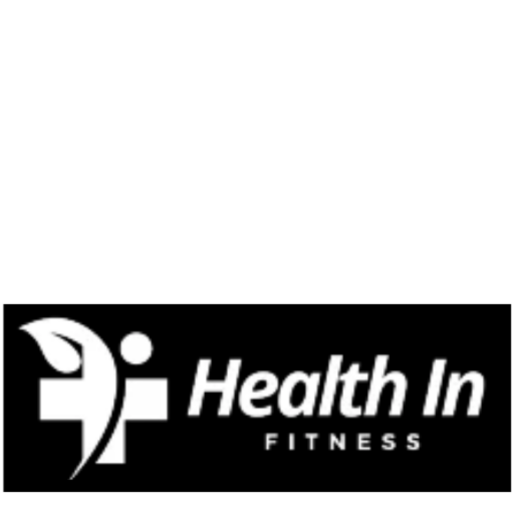Staying healthy as we age is crucial to maintaining a high quality of life. As we get older, our bodies undergo various changes that can affect our health and well-being. By taking proactive steps and addressing health issues early, we can ensure that we remain active, vibrant, and independent for as long as possible. In this comprehensive guide, we will explore the best practices for staying healthy as we age, covering everything from nutrition and exercise to mental health and preventive care
Staying Healthy as We Age: Understanding the Aging Process
Physical Changes
Staying healthy as we age involves understanding the physical changes that naturally occur. These include:
- Muscle Loss: Sarcopenia, or age-related muscle loss, can reduce strength and mobility. Regular strength training and adequate protein intake can help mitigate this loss.
- Bone Density Reduction: Osteoporosis becomes a risk, making bones more fragile. Weight-bearing exercises and calcium-rich diets are crucial to maintaining bone health.
- Metabolic Slowdown: Metabolism slows down, leading to potential weight gain. Staying active and eating a balanced diet can help manage weight.
- Sensory Changes: Vision and hearing may decline, affecting daily activities. Regular check-ups with eye and ear specialists can help manage these changes effectively.
Mental and Cognitive Changes
Cognitive health is also crucial for staying healthy as we age. Common changes include:
- Memory Decline: Short-term memory may weaken, though long-term memory often remains intact. Engaging in mentally stimulating activities can help keep the mind sharp.
- Slower Cognitive Processing: Reaction times and the ability to multitask can diminish. Practice patience and mindfulness techniques to manage these changes.
- Mental Health Risks: Increased risk of depression and anxiety due to life changes and health concerns. Staying socially active and seeking professional help when needed are essential strategies.
Staying Health As We Age: Nutrition for Aging Gracefully
Balanced Diet
A balanced diet is fundamental for staying healthy as we age. Key components include:
- Lean Proteins: Essential for muscle maintenance and repair. Include sources like chicken, fish, beans, and legumes.
- Whole Grains: Provide sustained energy and fiber. Examples include oats, brown rice, and quinoa.
- Fruits and Vegetables: Rich in vitamins, minerals, and antioxidants. Aim for a variety of colors to get a range of nutrients.
- Healthy Fats: Support brain health and reduce inflammation. Sources include avocados, nuts, seeds, and olive oil.
Specific Nutritional Needs
As we age, our nutritional needs change. Important considerations are:
- Calcium and Vitamin D: Crucial for bone health. Dairy products, leafy greens, and fortified foods are excellent sources.
- Vitamin B12: Necessary for red blood cell formation and neurological function. Found in meat, fish, dairy, and fortified cereals.
- Fiber: Promotes digestive health and prevents constipation. Whole grains, fruits, vegetables, and legumes are key sources.
- Hydration: Older adults may not feel as thirsty, but staying hydrated is vital. Aim for at least 8 glasses of water a day.
Supplements
While whole foods should be the primary source of nutrients, supplements can help fill gaps:
- Multivitamins: Ensure a broad range of vitamins and minerals.
- Omega-3 Fatty Acids: Support heart and brain health.
- Probiotics: Promote digestive health and enhance the immune system.
Exercise: Staying Active
Importance of Exercise
Regular physical activity is a cornerstone of staying healthy as we age. Benefits include:
- Improved Cardiovascular Health: Reduces the risk of heart disease and stroke.
- Enhanced Mobility and Flexibility: Helps maintain independence and reduces the risk of falls.
- Better Mental Health: Physical activity releases endorphins that boost mood and reduce stress.
Types of Exercise
Incorporate a mix of exercises to address different aspects of fitness:
- Aerobic Exercise: Walking, swimming, and cycling improve cardiovascular health.
- Strength Training: Weight lifting, resistance bands, and body-weight exercises build muscle mass.
- Flexibility Exercises: Yoga and stretching routines enhance flexibility and reduce stiffness.
- Balance Exercises: Tai chi and balance drills help prevent falls by improving stability.
Creating a Routine
Develop a regular exercise routine tailored to your abilities and preferences:
- Start Slowly: Gradually increase the intensity and duration of your workouts.
- Mix It Up: Variety prevents boredom and works different muscle groups.
- Listen to Your Body: Rest when needed and avoid overexertion.
- Stay Consistent: Aim for at least 150 minutes of moderate-intensity exercise per week.
Overcoming Barriers to Exercise
Common barriers to exercise can be overcome with practical strategies:
- Time Management: Schedule workouts like appointments.
- Physical Limitations: Modify exercises to suit your abilities.
- Motivation: Find an exercise buddy or join a class for accountability and social interaction.
Mental Health: Staying Sharp and Positive
Cognitive Activities
Staying healthy as we age also means keeping our minds sharp. Engage in activities that challenge the brain:
- Puzzles and Games: Crosswords, Sudoku, and board games stimulate cognitive function.
- Learning New Skills: Taking up new hobbies or learning a new language can enhance brain plasticity.
- Reading and Writing: Regularly reading books, newspapers, or writing journals boosts cognitive engagement.
Social Connections
Maintaining social connections is vital for mental health:
- Stay Connected: Regularly meet with friends and family.
- Join Groups: Participate in clubs, volunteer activities, or community groups.
- Use Technology: Video calls and social media can help maintain relationships, especially if mobility is an issue.
Managing Stress
Stress management is crucial for staying healthy as we age:
- Relaxation Techniques: Practice mindfulness, meditation, or deep breathing exercises.
- Physical Activity: Exercise is an excellent stress reliever.
- Hobbies and Interests: Engage in activities you enjoy to reduce stress and enhance well-being.
Recognizing and Treating Mental Health Issues
Early recognition and treatment of mental health issues are essential:
- Depression and Anxiety: Seek professional help if experiencing persistent sadness or anxiety.
- Cognitive Decline: Regular cognitive assessments can help detect early signs of conditions like Alzheimer’s disease.
Preventive Care: Addressing Health Issues Early
Regular Check-Ups
Preventive care is essential for staying healthy as we age. Regular check-ups help detect issues early:
- Annual Physicals: Regular visits to your primary care physician.
- Screenings: Routine screenings for blood pressure, cholesterol, diabetes, and cancer.
- Vaccinations: Stay up to date with vaccines, including flu, pneumonia, and shingles.
Managing Chronic Conditions
Early management of chronic conditions is crucial:
- Follow Treatment Plans: Adhere to prescribed medications and treatment regimens.
- Monitor Symptoms: Keep track of any changes in your health and report them to your doctor.
- Lifestyle Changes: Adopt a healthy lifestyle to manage conditions like diabetes, hypertension, and arthritis.
Healthy Habits
Adopting healthy habits can prevent many health issues:
- Quit Smoking: Smoking cessation improves overall health and reduces the risk of many diseases.
- Limit Alcohol: Moderate alcohol consumption to reduce the risk of liver disease and other health issues.
- Healthy Weight: Maintain a healthy weight to reduce the risk of chronic conditions.
Importance of Screenings
Regular screenings are vital for early detection of potential health issues:
- Cancer Screenings: Mammograms, colonoscopies, and prostate exams can detect cancer early.
- Bone Density Tests: Monitor bone health to prevent osteoporosis.
- Eye and Ear Exams: Regular check-ups can prevent vision and hearing loss.
Importance of Sleep
Quality Sleep
Getting quality sleep is vital for staying healthy as we age:
- Sleep Environment: Ensure your bedroom is comfortable, dark, and quiet.
- Sleep Routine: Maintain a consistent sleep schedule by going to bed and waking up at the same time every day.
- Avoid Stimulants: Limit caffeine and alcohol intake, especially in the evening.
Addressing Sleep Issues
Common sleep issues should be addressed early:
- Sleep Apnea: Consult a doctor if you experience symptoms like loud snoring or daytime fatigue.
- Insomnia: Practice good sleep hygiene and consider cognitive-behavioral therapy for persistent insomnia.
- Restless Legs Syndrome: Seek medical advice if you experience uncomfortable sensations in your legs at night.
Sleep Hygiene Tips
Improving sleep hygiene can enhance sleep quality:
- Limit Screen Time: Avoid screens an hour before bed.
- Relaxation Techniques: Practice deep breathing or meditation before sleep.
- Comfortable Bedding: Invest in a good mattress and pillows.
Healthy Environment
Safe Home
Creating a safe home environment is essential for staying healthy as we age:
- Fall Prevention: Remove tripping hazards, install grab bars, and ensure adequate lighting.
- Accessible Living: Make modifications to accommodate any mobility issues, such as ramps or stairlifts.
- Emergency Preparedness: Keep emergency contacts handy and consider a medical alert system.
Community Resources
Utilize community resources to support healthy aging:
- Senior Centers: Participate in activities and programs designed for older adults.
- Home Care Services: Access services that assist with daily tasks and medical care.
- Transportation: Utilize community transportation options if driving becomes difficult.
Outdoor Activities
Staying active outdoors has additional benefits:
- Vitamin D: Sun exposure helps maintain healthy vitamin D levels.
- Mental Health: Nature walks can reduce stress and improve mood.
- Social Interaction: Outdoor group activities foster social connections.
Embracing Technology
Health Monitoring
Technology can aid in monitoring and maintaining health:
- Wearable Devices: Track physical activity, heart rate, and sleep patterns.
- Health Apps: Manage medications, track diet, and monitor symptoms.
- Telemedicine: Access healthcare services remotely, making it easier to consult with doctors.
Staying Connected
Using technology to stay connected with loved ones:
- Video Calls: Platforms like Zoom and Skype help maintain face-to-face interactions.
- Social Media: Engage with friends and family through Facebook, Instagram, and other social networks.
- Online Communities: Join forums and groups to connect with others who share similar interests and challenges.
Financial Health
Planning for the Future
Financial health is crucial for overall well-being as we age:
- Retirement Planning: Ensure you have a solid retirement plan in place.
- Budgeting: Maintain a budget to manage expenses and savings.
- Healthcare Costs: Plan for potential healthcare costs, including long-term care insurance.
Managing Finances
Keeping finances in order helps reduce stress:
- Automate Bills: Set up automatic payments to avoid late fees.
- Review Investments: Regularly review your investment portfolio to ensure it meets your needs.
- Seek Advice: Consult with financial advisors to make informed decisions.
Conclusion
Staying healthy as we age requires a proactive and holistic approach. By understanding the aging process, maintaining a balanced diet, staying active, prioritizing mental health, engaging in preventive care, ensuring quality sleep, and creating a safe environment, we can enjoy a high quality of life in our later years. Early intervention and consistent healthy habits are key to thriving as we age. Start implementing these strategies today to pave the way for a healthier, happier future.




